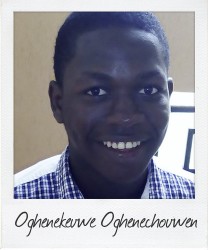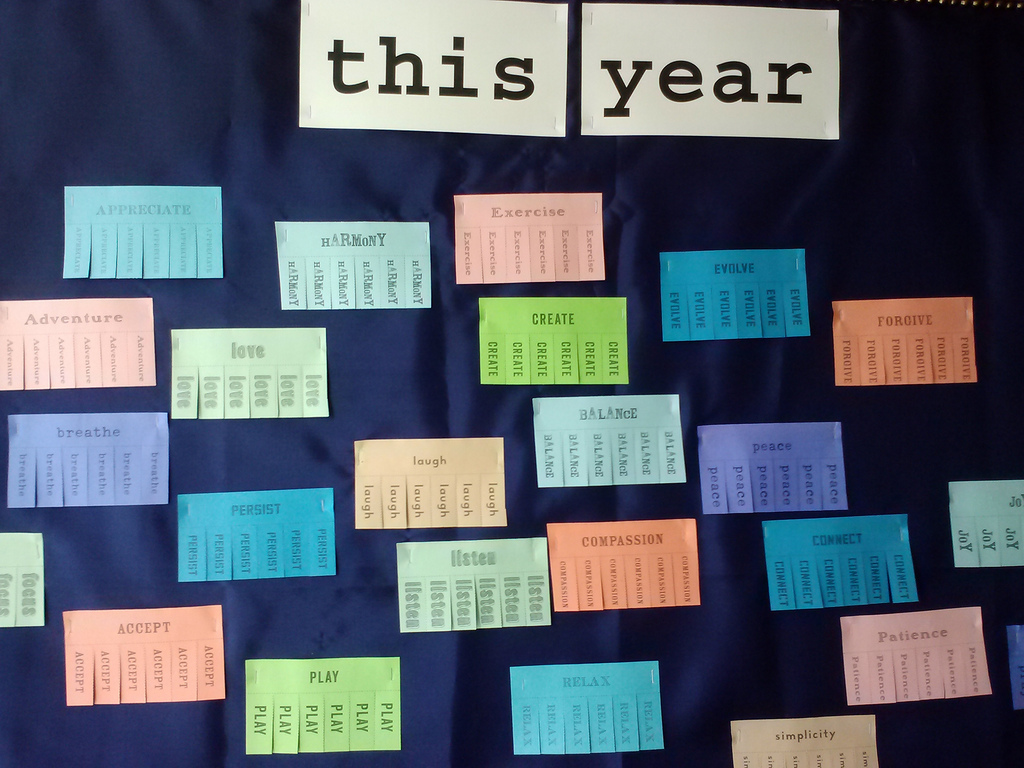“Questions to ask about your resolutions”
January 14  A fresh take on New Year’s resolutions comes from Oghenekevwe Oghenechovwen, 17, a Correspondent from Warri in Nigeria, who argues that asking questions is the first step in making meaningful change.
A fresh take on New Year’s resolutions comes from Oghenekevwe Oghenechovwen, 17, a Correspondent from Warri in Nigeria, who argues that asking questions is the first step in making meaningful change.
“We thought that we had the answers, it was the questions we had wrong.” – Bono.
Almost everyone had made resolutions for year 2016: promises to improve on their former actions or to do something nice. To some, they hope it will serve as a road map for the next 12 months.
I am not a fan of this, honestly. I do not believe in resolutions because today’s unstable society does not allow for our existing plans of action but demands from us, as ‘competitors’, quick or almost immediate decisions.
For 2016, I support asking questions that matter in our different societies. This is what the 21st society craves, as this act promotes higher learning. Questions worth asking provoke the minds of people to create ideas that add positive value, tackle societal challenges, and ensure all-round sustainability. Thinking is driven by these questions. Indeed, they really matter!
Having said this, I will share with you some important questions I think we ought to ask for 2016.
First, “When should I take part?”
The answer is ‘now’. Many individuals see the engineering of society as purely the government’s business; they do not want to participate because of reasons such as delayed or unfulfilled promises. They are societally apathetic, and this does not make for a healthy society. Fine! I agree, you do not have the power to make or enforce the laws that control society and her people, but you can influence decisions and people in your neighbourhood by taking part in town meetings, polls, and public debates. The First Citizen there is you. Imagine the phenomenal change that will occur if we all put this in our consciousness whilst taking part now and living our lives in ways that influence people positively.
Secondly, “What do I have to learn?”
In these times, when educational degrees are more appreciated with societal values attached to them, it is the right thing to acquire relevant knowledge. Book knowledge never equals relevant knowledge. The latter is left for you alone to decipher and learn, in order not to be left out in the rat race. After all, continuous relevance to man and society is what everybody desires.
Lastly, let us ask, “How can I give back to society?”
Yes, 2016 is the time to give back. We have been collecting for the best part of our lives. Let us make a decision to imbue a giving culture with regard to our time, energy, resources, voice, and knowledge. This is most simple and feasible. Volunteer for a good cause, post your thoughts and ideas on important issues on your online social accounts, and pass what you know to another. Imagine the great circle of positive influence that will occur!
The 2016 society will thrive with these, and her people – you and I – will be fulfilled. Let’s join hands. We shall not fail!
photo credit: One word resolutions station via photopin (license)
…………………………………………………………………………………………………………………
About me: A B.Tech. student of Meteorology and Climate science (FUTA), I am an idealist, observer, a leader, creative writer and ready volunteer.
I am interested in volunteering, youth and education, leadership, women empowerment, climate change, politics, media and information technology.
My ambition is to make change and cause global reformation with my pen, resources and time.
…………………………………………………………………………………………………………………
Opinions expressed in this article are those of the author and do not necessarily represent the views of the Commonwealth Youth Programme. Articles are published in a spirit of dialogue, respect and understanding. If you disagree, why not submit a response?
To learn more about becoming a Commonwealth Correspondent please visit: http://www.yourcommonwealth.org/submit-articles/commonwealthcorrespondents/
…………………………………………………………………………………………………………………




